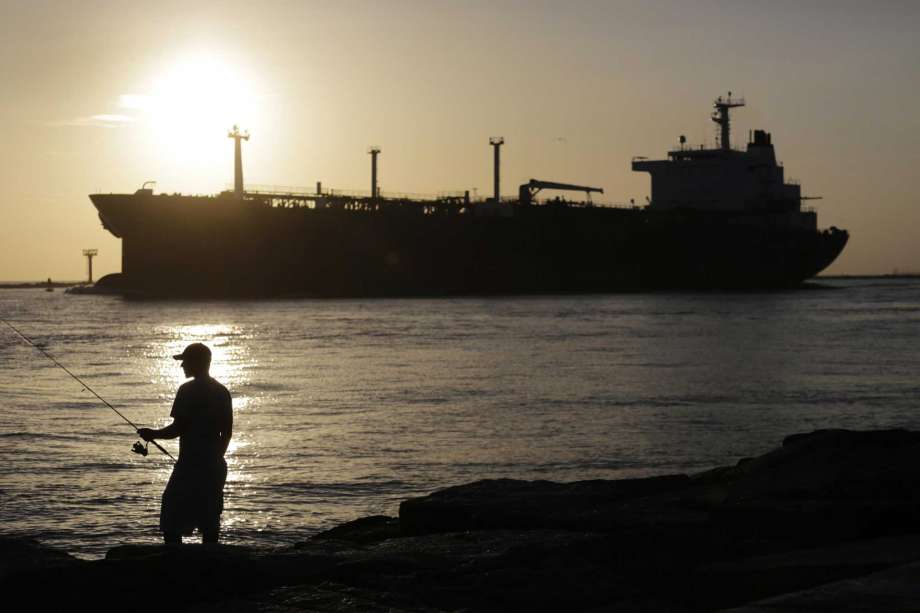The world’s oil tankers are being filled with crude at a record pace as the options to store a glut on land rapidly diminish, one of the industry’s largest owners said.

A combination of surging production from key producers worldwide and capitulating demand in the face of the coronavirus outbreak means that land storage is being overwhelmed, said Robert Hvide Macleod, Chief Executive Officer of Frontline Management AS. The world is likely overproducing by about 20 million barrels a day, or 20% of normal consumption, he said, echoing wider industry views.
“Oil is going on ships at a speed never seen before,” he said, noting that the tanker fleet is filling up at five times the pace of the last oil glut in 2015.
The oil market’s structure has fallen into a so-called super contango, which means it is now profitable for traders to buy oil today, store it, and reap the profits by selling it at a higher price months or even years down the line. International Seaways Inc., another owner, said on Thursday that the total volume of oil in floating storage may top 100 million barrels during this glut.
IHS Markit, an industry consultant, said storage sites could be filled by the end of the second quarter at current rates of supply and demand, implying producers will soon have to scale back. Firms including Vitol Group and Gunvor Group, two of the world’s largest oil traders, say there’s intense demand to keep barrels at sea.
Smaller tankers
Traders typically look to use the largest ships for oil storage as they are the most cost-effective. In recent days though, shipowners have also been receiving inquiries about smaller vessels that can hold a million barrels or fewer and for periods of time longer than 12 months, said International Seaways Chief Executive Officer Lois Zabrocky.
“This is a once-in-a-generation type of event,” she said Thursday.
Profits have been growing this week for keeping barrels on the water, according to shipbroker and exchange data compiled by Bloomberg. It costs $5.40 a barrel for a six month charter, according to data from E.A. Gibson Shipbrokers Ltd. sent on Thursday. The comparable contango — or the premium for later prices — far exceeded that, according to exchange data.
Tanker rates have jumped in recent weeks as the glut boosts demand for the ships. Benchmark rates have jumped to about $120,000 a day, from about $40,000 at the start of the month. They continued to strengthen on Friday, something that makes storage less profitable, according to people in the market.
“Floating storage is really the name of the game presently,” said Espen Fjermestad, an analyst at Fearnley Securities AS.
[contextly_sidebar id=”UcXtKHDXsKZgnHi4ehBJtXwK7hwDVxxr”]



